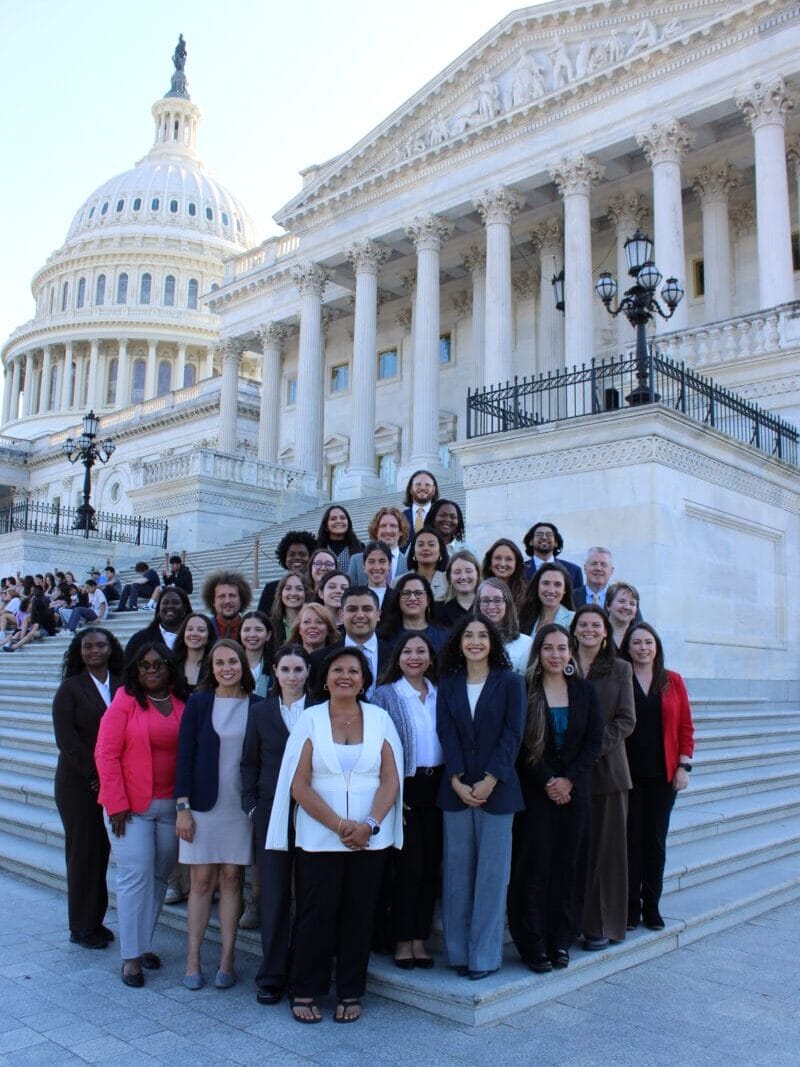By Alissa Haskins, ASU sustainable food systems graduate student

Our graduate cohort of 34 students from 19 different states had the pleasure of hearing from Dr. Carlos Ortiz, National Program Leader at USDA's National Institute of Food and Agriculture (NIFA), during our food policy immersive course in Washington, DC. In this role, Dr. Ortiz develops programming and manages the implementation of the U.S. Department of Agriculture (USDA) NextGen program. Through this program, Arizona State University, in partnership with the University of Alaska Fairbanks, Hawaiʻi Pacific University, University of Guam and the nonprofit FoodCorps, was awarded an $18.5 million grant in 2023.
The USDA NextGen program is a $262.5 million investment in institutions of higher education to cultivate the next generation of food systems leaders. The aim of the NextGen program is to engage, retain, train, and support students in discovering careers in food and agriculture, specifically with hopes to grow the USDA workforce. With an aging workforce moving toward retirement, it is critical to engage young professionals in opportunities in the field. The NextGen program also serves to increase equity and diversity at USDA. Agriculture is part of everyday life, and it is vital to create pathways that invite all backgrounds to the table.
According to Dr. Ortiz, USDA has many goals for the NextGen program. One is for young professionals to see themselves in the makeup of the USDA workforce. The NextGen program also wants to provide opportunities for people to create their own paths, ones that are not linear, but have many layers. Additionally, an important component of the NextGen program is to give the space for participants to choose how they want to contribute and make an impact in their own unique way. The NextGen program provides opportunities for each of these goals to come true.
In order to make a difference in our communities, we must bring our life experiences to the forefront of policy making. However, sharing our full selves with others can be uncomfortable. Dr. Ortiz explains that sometimes feeling uncomfortable is a good thing because it is important to share your own perspective. Sharing your expertise, strengthened by life experiences, can help translate meaningful policies into ones that benefit underrepresented communities. Dr. Ortiz has a “deep passion for opening the door for students,” and ensuring they feel seen and heard is just one way this program does that.
Our cohort and future cohorts directly benefit from the grant funding from the NextGen program. This funding has made pursuing a graduate degree possible and has created a pathway for diverse voices to have a seat at the table. We are the next generation of leaders in the food systems space and we are ready to make our mark.
This work is supported by the From Learning to Leading: Cultivating the Next Generation of Diverse Food and Agriculture Professionals (NextGen) Program, project award no. 2023-70440-40222, from the U.S. Department of Agriculture’s National Institute of Food and Agriculture. Any opinions, findings, conclusions, or recommendations expressed in this publication are those of the author(s) and should not be construed to represent any official USDA or U.S. Government determination or policy.
This blog is part of a series from the Swette Center’s annual Food Policy Immersion, a required course in their two graduate programs. Students met with federal food and agriculture focused officials at USDA, the White House, and Congress alongside many other important influencers of policy in industry and non-profits.